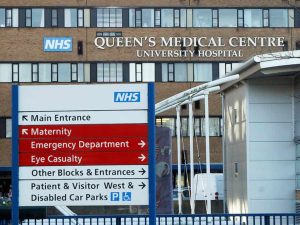Alcohol abuse is rising globally, with more people than ever understanding that their relationship with the substance could be problematic. There are many reasons for this and despite efforts to raise awareness and reduce consumption, the numbers continue to be troubling.
As we approach the midway point in 2024, a year in which there have been plenty of stresses, we take a look at the state of play in the country, from the problem itself to the many private alcohol rehab centres UK wide doing their bit to get people’s lives back on track…
The Extent of the Problem
Alcohol has long been a common part of daily life in the UK, often associated with socialising, celebration and relaxation. However, this cultural norm is causing a real problem with alcohol abuse in the UK, with many people normalising it as a destressor and as a result developing addiction problems.
According to the Office for National Statistics, a quarter of people drink more than the recommended 14 units per week, while every year upwards of 10,000 people die as a result of alcohol-specific causes.
The UK Chief Medical Officers’ guidelines suggest that to keep health risks from alcohol to a low level, both men and women should not regularly drink more than 14 units per week. Yet, many exceed this limit, leading to serious health consequences. Alcohol-related hospital admissions have been rising, with the NHS reporting over 350,000 admissions in 2019-2020 where alcohol was the primary reason for admission or a contributing factor.
Health Impacts
Many of us will be aware of some of the health impacts of alcohol abuse, but while we’re aware of the likes of liver disease and liver cancer, many people aren’t as aware of the profound impacts it can have on mental health, which is contributing to the crisis we have in this country around anxiety and depression too.
That’s combined with many other risks, such as cardiovascular diseases, heart diseases and the increased risk of cancers such as mouth, throat, breast and colon.
Social and Economic Costs
One of the big problems with the country’s problems with alcohol is the cost of it all. It’s estimated that alcohol costs the NHS around £3.5billion each year.
Alongside this, there’s the criminal justice system, policing and the workplace that all lose money as a result, the latter largely down to absenteeism, accidents and reduced performance. In fact, it’s believed that this costs the UK economy a staggering £7.3billion per year!
Addressing the Issue
Efforts to combat alcohol abuse in the UK involve a combination of policy measures, public health campaigns, and support services. One of the most prominent strategies has been the introduction of minimum unit pricing (MUP) in Scotland in 2018, followed by Wales in 2020. MUP sets a floor price for alcohol, aiming to reduce excessive drinking by making cheap, high-strength alcohol less affordable. Early evaluations suggest that MUP has been effective in reducing alcohol sales, particularly among the heaviest drinkers.
Public health campaigns, such as Dry January, encourage people to take a break from alcohol and reflect on their drinking habits. These campaigns have gained popularity, with increasing numbers of participants each year. They aim to raise awareness of the health risks associated with alcohol and promote healthier lifestyle choices.
Support services play a crucial role in addressing alcohol abuse. Organisations like Alcoholics Anonymous (AA) and various local charities offer counselling, support groups, and rehabilitation programmes. The NHS also provides treatment options, including detoxification and psychological therapies.
Over the coming years, particularly with a new government likely to be in place, more needs to be done to tackle the crisis around alcohol in the country, with more awareness of the risks of alcohol, particularly for young people, as well as highlighting the help that is there. It won’t solve the issue, but we may begin to see the numbers drop and people can enjoy a healthier and more productive lifestyle, that not only benefits them, but eases the strain on the NHS and boosts the UK economy as a result.




